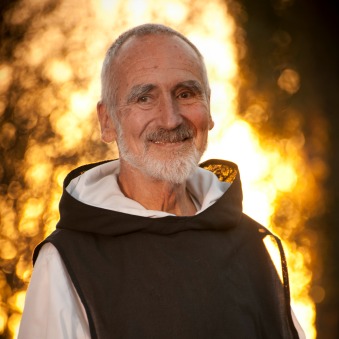The Self lives in the now; the I lives in time. Shifting your center of awareness from the I to the Self means anchoring your consciousness in the now.
Let us begin by asking: For what kinds of happiness are humans longing? Countless different things make different people happy. But our question concerns genuine happiness: that which lasts. We may be glad when this or that makes us happy for a while, but when we ask our heart what it most deeply and insistently longs for, even in the midst of delights, we hear a surprising answer: “Every delight longs for eternity.” Friedrich Nietzsche put it this way, but every man, woman, and child knows that same longing at the core of their being, even if they cannot put it into words. “Eternity?” the voice of reason may sneer, telling us to be a bit realistic. But Blaise Pascal will reply: “The heart knows reasons that reason cannot fathom.” His approach has the advantage that it allows us to start with personal experience. We will only have to ask: What kind of happiness does my own heart desire?

Photo by Diego Ortiz Mugica
We are born; we want to be happy; we must die. Is there room in this universal scenario for lasting, let alone “eternal,” happiness? It would hardly seem so — until we begin to examine “eternity” experientially. All of us think that we know what we mean by “now,” but – surprising as it may sound — this now is eternity. We tend to imagine the now as the short stretch of time between past and future. But as long as it is a stretch, we can cut it in half. When we do, half is not, because it is no more, and the other half is not, because it is not yet. Where, then, is the now? The surprising answer is: The now is not in time.
Augustine’s definition: “Eternity is the now that does not pass away.” A happiness anchored in the now is eternal.
We can even go one step further. “All is always now,” says T. S. Eliot. This statement implies a profound insight: Not only is the now not in time; time is in the now. When the future comes, it will be now, and any past event becomes now as we remember it. There is only one now. It cannot be multiplied; it simply is. The now is the opposite of time. In fact, this is Augustine’s definition: “Eternity is the now that does not pass away.” A happiness anchored in the now is eternal. This precisely is the happiness our heart desires — eternal, and unassailable, because it is beyond the reach of “time the destroyer” (as T. S. Eliot calls time).
But how can my happiness be anchored in the eternal now while I live in time? To answer this question, we must pay attention to a distinction we make in everyday language. Sometimes we say “I,” at other times, “I myself.” There is indeed a distinction between I and Self. Experience tells me that my Self can watch my I. (Again we are building our argument on experience so that you can check it out for yourself.) You can step back and watch what your I is doing, feeling, thinking. The one who watches — when you step back far enough to be the observer whom no one can observe — that is your Self. The Self lives in the now; the I lives in time. Shifting your center of awareness from the I to the Self means anchoring your consciousness in the now. At first we can do this only for brief moments. But with practice — about which we will say more, later — we can learn to take the temporal happiness of the I lightly and enjoy more and more the “now-happiness” of the Self, the condition that accounts for genuine happiness.
We can become aware that the Self is one. We share it with all humans, indeed with all living beings.
So crucial is this point that a few more words about the relationship of Self and I may be helpful. We can become aware that the Self is one. We share it with all humans, indeed with all living beings. Our innermost Self is the Spirit that fills the universe and holds all things together. This Self is so inexhaustible that it finds ever new ways to express itself. My I is one such expression. The I is the mask which the Self puts on for a time to play a particular part on the stage of time. But the I tends to forget that it is merely a temporal mask of the Self; it likes to think that it is all that matters. By this error the I becomes the “ego,” estranged from the Self and entangled in time. But when my I serves the Self as means to express itself, as a mask serves the actor, not even death can affect my happiness.
The original article first appeared on the website of the Center of Law and Religion at Emory University, and is posted with their permission.
Read the full article: A Basic Human Approach to Happiness

Photo by Diego Ortiz Mugica
Br. David Steindl-Rast, OSB, studied art, anthropology, and psychology, at the Vienna Academy of Fine Arts (MA) and the University of Vienna (PhD). In 1953, he joined Mount Saviour Benedictine Monastery in New York State. In 1975 he received the Martin Buber Award for building bridges between religious traditions. His books include Gratefulness, the Heart of Prayer; A Listening Heart; and Deeper Than Words. Br. David is co-founder of A Network for Grateful Living and serves as senior advisor of Gratefulness.org.



Comments are now closed on this page. We invite you to join the conversation in our new community space. We hope to see you there!